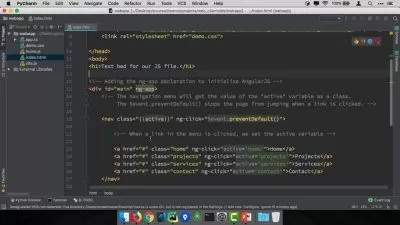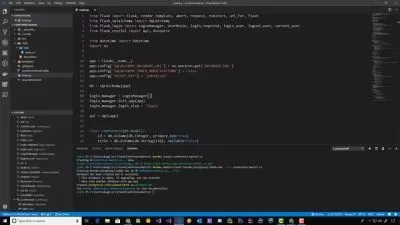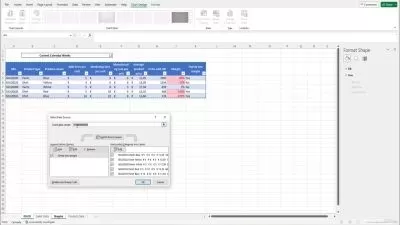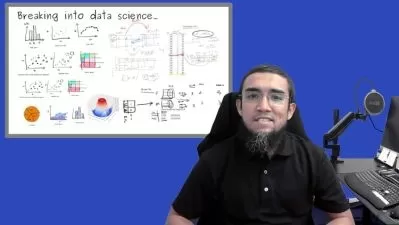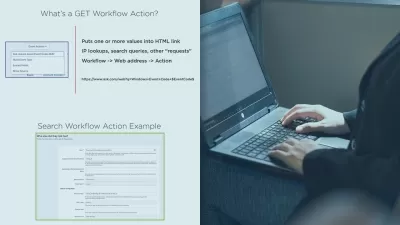Software Design for Data Science
Dr. Spyros Giannelos
4:07:51
Description
Fundamental Programming principles for Developing Data Analysis applications
What You'll Learn?
- Learn how to structure the code for writing Data Science applications
- Gain confidence in writing efficient code
- Learn the fundamental software design principles for Data Science
- Learn how to use custom Annotations, and which ones to use
- Build your own Annotations and place them exactly at the best places in the code
- Develop your own logger and configure it in the optimal way
- Part of the giannelos dot com official certificate for high-tech projects.
Who is this for?
More details
Description
===================================================
The course content , which is very old, is radically updated!
Original course content was 10 hours. Now it has been reduced to 2 hours.
Currently it is being updated.
Please bear with me, as IÂ am updating the course content at my limited free time .
I offer refunds
=====================================================
What is the course about:
This online course teaches you how to actually write code for developing Data Science Software.
The principles of software design depend on the program we have in mind. If we aim for Data Science applications then the Software Design must apply a different set of principles than if we aim for developing software for web applications.
Software Design for Data Science needs to be able to handle the data structures encountered in Data Science.
This course goes through the most important and fundamental practices of Software Design used in practice and explains them using intuitive examples, to ensure you truly comprehend the material.
 Who:
I am a research fellow at Imperial College London, and I have been part of high-tech projects at the intersection of Academia & Industry for over 10 years, prior to, during & after my Ph.D. I am also the founder of the giannelos dot com program in data science.
Doctor of Philosophy (Ph.D.) in Analytics & Mathematical Optimization applied to Energy Investments, from Imperial College London, and Masters of Engineering (M. Eng.) in Power Systems and Economics.
Important:
Prerequisites: The course Data Science Code that appears all the time at Workplace.
Every detail is explained, so that you won't have to search online, or guess. In the end, you will feel confident in your knowledge and skills.
We start from scratch so that you do not need to have done any preparatory work in advance at all. Just follow what is shown on screen, because we go slowly and explain everything in detail.
Who this course is for:
- Entrepreneurs
- Economists
- Quants
- Members of the highly googled giannelos dot com program
- Investment Bankers
- Academics, PhD Students, MSc Students, Undergrads
- Postgraduate and PhD students.
- Data Scientists
- Energy professionals (investment planning, power system analysis)
- Software Engineers
- Finance professionals
===================================================
The course content , which is very old, is radically updated!
Original course content was 10 hours. Now it has been reduced to 2 hours.
Currently it is being updated.
Please bear with me, as IÂ am updating the course content at my limited free time .
I offer refunds
=====================================================
What is the course about:
This online course teaches you how to actually write code for developing Data Science Software.
The principles of software design depend on the program we have in mind. If we aim for Data Science applications then the Software Design must apply a different set of principles than if we aim for developing software for web applications.
Software Design for Data Science needs to be able to handle the data structures encountered in Data Science.
This course goes through the most important and fundamental practices of Software Design used in practice and explains them using intuitive examples, to ensure you truly comprehend the material.
 Who:
I am a research fellow at Imperial College London, and I have been part of high-tech projects at the intersection of Academia & Industry for over 10 years, prior to, during & after my Ph.D. I am also the founder of the giannelos dot com program in data science.
Doctor of Philosophy (Ph.D.) in Analytics & Mathematical Optimization applied to Energy Investments, from Imperial College London, and Masters of Engineering (M. Eng.) in Power Systems and Economics.
Important:
Prerequisites: The course Data Science Code that appears all the time at Workplace.
Every detail is explained, so that you won't have to search online, or guess. In the end, you will feel confident in your knowledge and skills.
We start from scratch so that you do not need to have done any preparatory work in advance at all. Just follow what is shown on screen, because we go slowly and explain everything in detail.
Who this course is for:
- Entrepreneurs
- Economists
- Quants
- Members of the highly googled giannelos dot com program
- Investment Bankers
- Academics, PhD Students, MSc Students, Undergrads
- Postgraduate and PhD students.
- Data Scientists
- Energy professionals (investment planning, power system analysis)
- Software Engineers
- Finance professionals
User Reviews
Rating
Dr. Spyros Giannelos
Instructor's Courses
Udemy
View courses Udemy- language english
- Training sessions 17
- duration 4:07:51
- Release Date 2023/03/02








